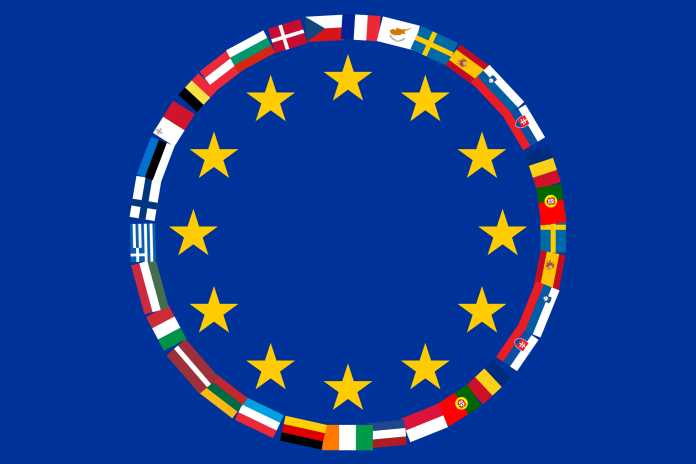This week, on the eve of the EU leaders’ summit in Granada, 32 former senior politicians, EU officials and economists published a manifesto entitled “The European Union at the time of the New Cold War”, according to Euractiv.
The published manifesto calls for the creation of an EU central fiscal authority, the completion of the Banking Union and Capital Markets Union, a transition to a new EU “business model” and institutional reforms.
The signatories, who include former former European Council President Herman Van Rompuy, former Italian Prime Ministers Romano Prodi and Mario Monti, EU Commission President Jean-Claude Juncker, favour “gradual and pragmatic federalism”. The manifesto argues:
“The time has come to acknowledge that nationalism is contrary to the national interest, that Member States’ national sovereignty is ineffective unless it is redefined in terms of European sovereignty, and that the supply of European Public Goods is crucial to satisfy national demands for economic, social, and political security.”
According to the signatories, who include economists such as Jean Pisani-Ferry and former central bank governor Erkki Liikanen, large amounts of money will be needed to adapt European industry to technological change. They write, arguing for the completion of the Banking Union and the Capital Markets Union:
“Reaching the technological frontier will require mobilising private and public resources that no Member State can do alone.”
The signatories think “it is needed a decisive move towards the construction of integrated and deep European financial markets based on the issuance of a European safe asset and the definition of a fully-fledged crisis management system.”
The leadership of the European Central Bank, namely Christine Lagarde and Fabio Panetta have recently stated the need for a European safe asset and further fiscal integration to achieve Capital Markets Union.
The manifesto also notes that the EU’s response to the pandemic with its recovery fund is a positive step, especially compared to the European approach to crises in the previous decade.
However, he emphasises that EU countries can only be in solidarity in opinions in times of crisis, which makes the institutional framework very fragile, and stresses the need for a more stable regulatory framework.
To this end, the manifesto also returns to the call for a Fiscal Union:
“Short of that, the EU will not be successful in pursuing its green and digital agendas and will continue to be at the mercy of external events, thus remaining vulnerable domestically and on the global scene.”
According to the signatories, stable EU funds backed by adequate revenue streams are needed to ensure European security. The manifesto argues:
“Joining up forces and funds at the EU level will be needed to meet the immense task of reconstructing Ukraine.Moving towards strategic autonomy will require pooling sovereignty at EU level in defence and security.”
Next year, the US will hold presidential elections where Donald Trump is expected to win. Therefore, the EU should be prepared for the fact that the US will start to focus more on its domestic issues and will not care much about European security.
The signatories also refer to Europe’s current industrial problems in light of the industrial policies of China and the US, warning of the uncoordinated subsidy race between European countries that is currently undermining the single market.
They believe that the EU should focus on the parts of it where it has strategic advantages, for example through a highly educated and well-trained workforce, rather than trying to bring all value chains back to Europe. The manifesto argues:
“[T]he goal should not be ‘made in Europe’, but ‘made with Europe’.”
Tobias Gehrke and Julian Ringhof, geo-economists at the European Council on Foreign Relations (ECFR), also support this idea. In a recent article, they urge the EU not to seek leadership in entire industries, but to provide “leadership in specific technologies that are vital to key supply chains and the global economy as a whole”.
To move towards such “gradual and pragmatic federalism”, the manifesto also suggests reforming the voting system in the EU Council. In some crucial areas, such as external relations and tax matters, member governments can only take decisions unanimously.
The manifesto calls for “flexible ways to allow isolated dissent not to become a veto, whilst at the same time protecting the dissenting member from the effects of the decision.” Moreover, it should “act with variable geometry and clubs of member states” since institutional reform is such an elusive task. Finally, the authors of the manifesto hope that their ideas will be supported and debated in next year’s European elections.
